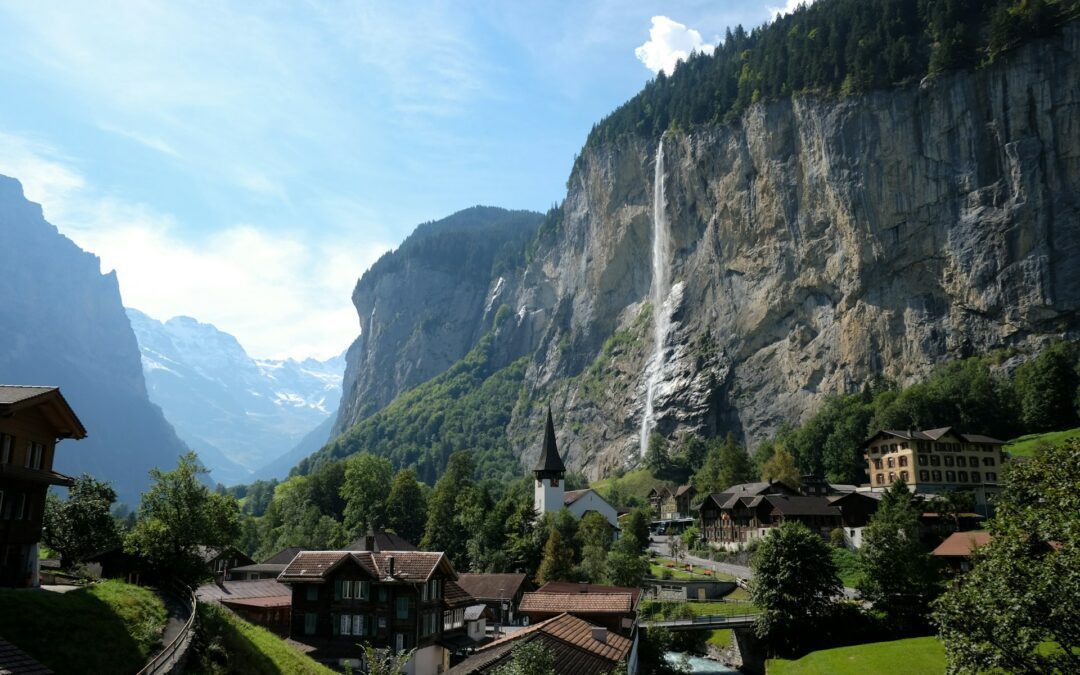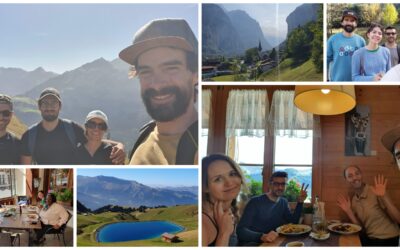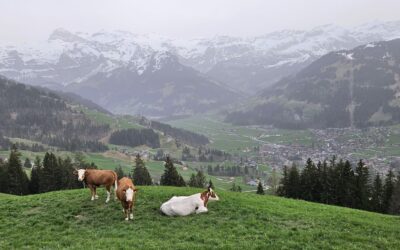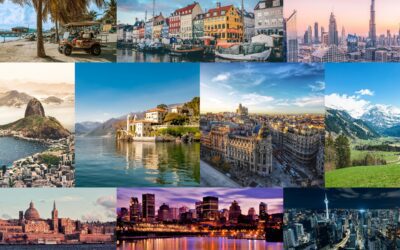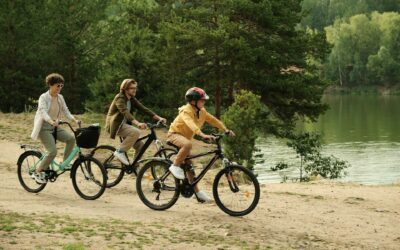|
|
There is just something romantic about the idea of the Swiss Alps. The mighty peaks that spring up as tall boundaries between some of Europe’s richest countries, and which, of course, featured in The Sound of Music, as the von Trapp family flees Salzburg over the mountains to the safety of Switzerland.
But if you have ever visited the Swiss Alps during the high season, either in the winter for skiing or in the summer for hiking, while the spectacular backdrop may have more than lived up to expectations, you may have found the region overrun by tourists and very expensive.
But most people don’t realize that the Swiss Alps are spectacular year-round, and you can experience the best of the region at a fraction of the price if you visit in spring or autumn.
If you are a remote worker, the off-season offers a unique opportunity to visit this famous region of the world while saving money, but that is just the tip of the snowy mountain cap.
In this article, I will go through the many good reasons to visit the Swiss Alps in the off-season beyond saving money. I will also share with you a unique workation opportunity in Lenk, Switzerland, available this spring for remote workers eager to explore the area.
Why Visit the Swiss Alps in the Off-Season
While a more affordable stay is one of the main reasons to visit the Swiss Alps in the off-season, here are some of the other great reasons why I think you should consider visiting in summer or autumn.
The Weather
The weather in Switzerland is fantastic during the off-season, allowing you to avoid the winter freeze and the sweltering summers that the region is just not prepared for. In spring and autumn, you can expect temperatures between 8-15 degrees Celsius (46-59 degrees Fahrenheit) in the mountains, and warmer temperatures up to 21 degrees Celsius (71 degrees Fahrenheit) in the cities.
The Landscape
The Alps are spectacularly beautiful in the autumn as the leaves start to change color and you can encounter red and gold mountainsides and sleepy green valleys. This is also when local fruit ripens.
In the spring, trees start to blossom, and everything is incredibly green. Temperatures rise quickly, and you can start seeing summer temperatures in the low 20s as early as May.
More Ways to Explore
No need to pay for expensive transport around the snowy slopes, rent a mountain bike and explore under your own steam. Get an electric bike to help with the peddling on the hardest slopes.
But you can take panoramic train rides through the region along the viaducts. You can travel past waterfalls and through the gorge of the Rhine.
The conditions for other outdoor activities such as hiking and swimming are also ideal.
Fewer Tourists
There are lots of advantages to having fewer tourists around when you visit, not the least of which is significantly lower prices. Accommodation prices tend to be on average 30% lower in the off-season.
If you are interested in getting to know the local people and culture, during the shoulder seasons you will encounter fewer international tourists and more locals and visitors from the surrounding region.
This also means that you can have better access to some of the biggest tourist sites such as the Matterhorn, Stanserhorn, Jungfrau, and Grindelwald, without strangers appearing in the background of all your photographic memories.
Season Activities
It is during autumn that you can witness the “Return of the Cows” as cows return from their Alpine pastures between September and October. The cows are dressed in colorful decorations and process down the mountains over a period of several weeks. They will eventually process through the streets of certain villages, accompanied by festive activities.
The autumn is also wine season in the region. This is when winemakers open their doors and offer tastings at a significantly reduced fee.
Ethical Travel Choice
If you are concerned about sustainable travel, it is also more environmentally ethical to travel in the off-season. The region is already under extreme environmental pressure in the high seasons due to the sheer number of people that flood into the region. By going in the off-season, you can enjoy the area while knowing that you are minimizing your impact.
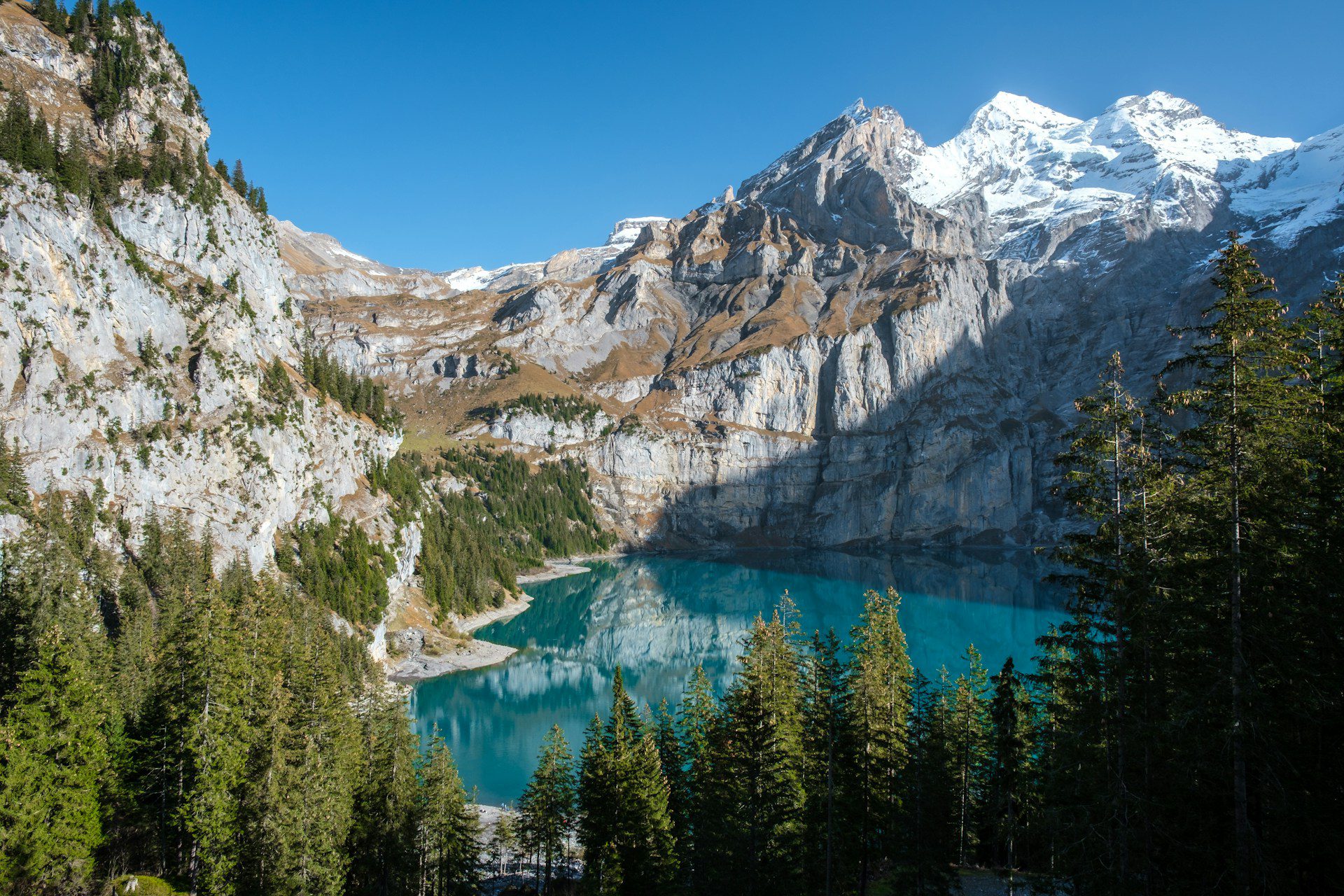
Spring Workation in the Swiss Alps
If you do want to visit the Swiss Alps in the off season and you want fully functioning accommodation which feels remote but still connected, then I recommend Lenk. This is a village in the middle of the Swiss Alps that is vibrant year-round and is particularly focused on providing services for remote workers.
If you are thinking of a Swiss workation, then you can take advantage of Hubs Travel’s special workation deals, the next taking place in the spring between 17 March and 16 June 2024. Hubs Travel offers both living and coworking spaces with high-speed internet so you can maintain productivity while exploring the surrounding region.
It is designed to be used year-round, so you will find full services available and enough other visitors for the area to feel vibrant, even in the lowest part of the season.
Book your stay for a minimum of 30 days for just CHF 1,200 (US$1,365) for the first month and get further discounts to stay for longer. A second month will cost just CHF 1,000 and a third month CHF 800 for a private, modern, and fully equipped studio.
The best thing is that you will find a community of like-minded people to inspire your work and share your travel adventures as you create unique memories in the Swiss Alps.
Find out more about the Hubs Travel exclusive opportunity here. You can read more about what it is like living and working in Lenk as a digital nomad here.
Visa to Visit the Swiss Alps in the Off-Season
Switzerland does not offer any kind of digital nomad visa, so for most people, your best option to explore the region is a Type C tourist visa for the Schengen area, which allows you to stay for up to 90 days. It is relatively easy to obtain, and many passport holders receive the visa stamp on arrival. If you need to pre-apply, you will need to demonstrate sufficient funds to support yourself and health insurance.
You can find European Union guidelines for applying for the Schengen visa here.

